Search Images
Browse Content (p. 1407)
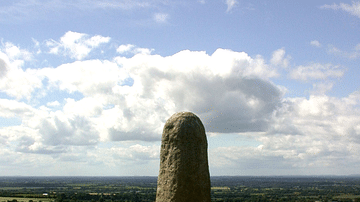
Image
Stone of Destiny, Hill of Tara
The Neolithic Lia Fail (Stone of Destiny), Hill of Tara, County Meath, Ireland, by which the ancient kings were inaugurated.

Image
Lysimachus
Head of Lysimachus (?). Early Hellenistic, ca. 300 BC. Museum of Ephesus, Turkey.
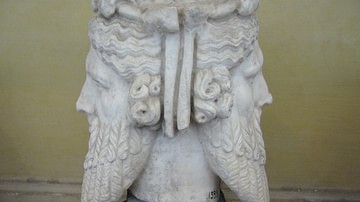
Image
Janus
A Roman period marble head of the two-faced Roman god of gates and beginnings Janus. (Vatican Museums, Rome)
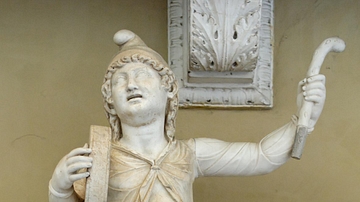
Image
Attis
A Roman period marble statue of Attis performing a dance of the Cybele cult. Attis was a Roman and Phrygian god, consort of Cybele, the nature and fertility goddess. (Vatican Museums, Rome)

Image
Montezuma Meets Cortés
A 17th-century CE oil painting depicting the meeting of Spanish Conquistador Hernán Cortés and Aztec ruler Montezuma (Motecuhzoma II) in 1519 CE. (Jay I. Kislak Collection)
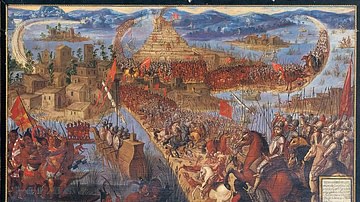
Image
Cortés & the Siege of Tenochtitlan
A 17th-century CE oil painting depicting the Spanish Conquistadores led by Hernán Cortés besieging the Aztec capital of Tenochtitlan in 1519 CE. (Jay I. Kislak Collection)

Image
Hernán Cortés
A 19th century CE engraving of Spanish Conquistador Hernán Cortés (1485–1547 CE) conqueror of the Aztec Empire in the early 16th century CE. (Book of America, R. Cronau)

Image
The Ashvins
The Ashvins (aka Asvini Kumaras) are two twin brothers of Hindu mythology, sons of the Sun god Surya. They may also be referred to as the ‘Horsemen’ and are forever young, handsome, and athletic.
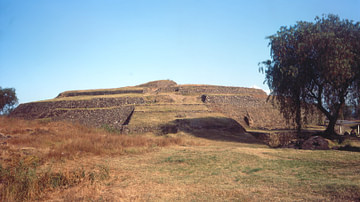
Image
Pyramid, Cuicuilco
The circular pyramid or temple mound of Cuicuilco, Mexico. Late Preclassic Period, after 500 BCE. The mound is 118 m in diameter and 23 m high.
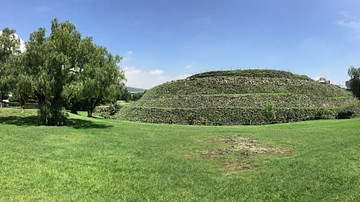
Image
Temple Mound of Cuicuilco
The circular pyramid or temple mound of Cuicuilco, Mexico. Late Preclassic Period, after 500 BCE. The mound is 118 m in diameter and 23 m high.